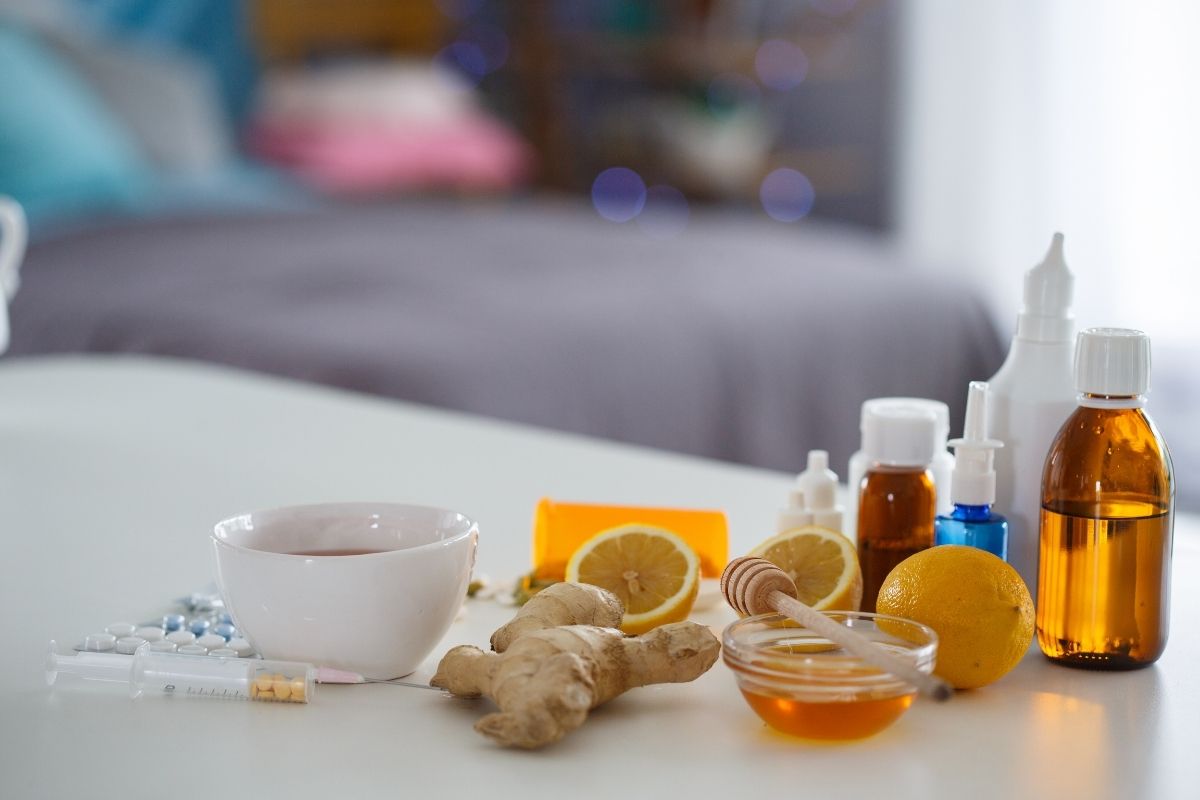Learning
Top10 Essential Oils for Fever| How to Use & Safety

Fever is a common symptom of illness, and while it can be unpleasant, it is actually a sign that your body is working to fight off an infection or disease. While fever-reducing medications can be effective, some people prefer to use natural remedies like essential oils to bring down their body temperature.
In this blog, we will explore the best essential oils for fever and how to use them safely and effectively. We will also discuss the potential risks and precautions to consider when using essential oils. By the end of this article, you should have a good understanding of how essential oils can be used as a natural fever-reducing remedy and how to use them safely.
Top essential oils for fever
There are several essential oils that are commonly used to reduce fever, including:
- Eucalyptus oil: The anti-inflammatory and decongestant properties of eucalyptus oil can help to reduce fever and relieve congestion.
- Peppermint oil: Peppermint oil has a cooling effect on the body and can help to reduce fever and soothe symptoms like headache and nausea.
- Lemon oil: Lemon oil has a refreshing scent and is known for its immune-boosting properties. It may also help to reduce fever and improve symptoms of cold and flu.
- Lavender oil: Lavender oil has a calming effect on the body and may help to reduce fever and improve sleep.
- Tea tree oil: Tea tree oil has antibacterial and antiviral properties that can help to reduce fever and fight off infection.Rosemary oil: Rosemary oil has anti-inflammatory and pain-relieving properties that may help to reduce fever and improve symptoms like headache and muscle aches.
- Rosemary oil: Rosemary oil has anti-inflammatory and pain-relieving properties that may help to reduce fever and improve symptoms like headache and muscle aches.
- Ginger oil: Ginger oil has anti-inflammatory and immune-boosting properties that may help to reduce fever and improve symptoms like nausea and vomiting.
- Thyme oil: Thyme oil has antibacterial and antiviral properties that may help to reduce fever and fight off infection.
- Basil oil: Basil oil has anti-inflammatory and pain-relieving properties that may help to reduce fever and improve symptoms like headache and muscle aches.
- Cinnamon oil: Cinnamon oil has antiviral and immune-boosting properties that may help to reduce fever and improve symptoms of cold and flu.
As with all essential oils, it is important to use caution and dilute the oil before use. It is also a good idea to consult with a healthcare professional before using essential oils, especially if you are pregnant, nursing, or have a pre-existing medical condition.
How To use
There are several ways to use essential oils to reduce fever and improve symptoms:
- Aromatherapy: One of the most popular ways to use essential oils is through aromatherapy. You can use a diffuser to disperse the oils into the air, or you can apply a few drops to a tissue or cotton ball and inhale the vapors. Aromatherapy can be especially helpful for relieving congestion and improving sleep.
- Topical application: You can also apply essential oils topically to the skin. However, it is important to dilute the oils with a carrier oil before applying to the skin, as undiluted essential oils can be irritating. You can apply the oils to the back of the neck, temples, and soles of the feet.
- Warm bath: Adding a few drops of essential oils to a warm bath can help to reduce fever and improve symptoms like headache and muscle aches. Be sure to mix the oils with a carrier oil before adding to the bath, as undiluted essential oils can be irritating to the skin.
It is always a good idea to consult with a healthcare professional before using essential oils, especially if you are pregnant, nursing, or have a pre-existing medical condition.
DIY Blend For Fever
Here is a simple DIY blend using essential oils that may help to reduce fever and improve symptoms:
Ingredients:
- 5 drops peppermint oil
- 5 drops eucalyptus oil
- 5 drops lemon oil
- 5 drops lavender oil
- 1 ounce carrier oil (such as coconut oil or jojoba oil)
Directions:
- Combine all ingredients in a small glass bottle.
- Shake well to mix the oils.
- To use, apply a small amount of the blend to the back of the neck, temples, and soles of the feet. You can also add a few drops to a warm bath or diffuser.
It is important to dilute essential oils before use, especially on the skin. It is also a good idea to test a small patch of skin for sensitivity before using the blend all over. Be sure to store the blend in a cool, dark place, as essential oils can degrade when exposed to light and heat.
It is always a good idea to consult with a healthcare professional before using essential oils, especially if you are pregnant, nursing, or have a pre-existing medical condition.
Safety Precautions To Take
When using essential oils, it is important to take the following precautions:
- Dilute before use: Always dilute essential oils with a carrier oil before applying to the skin. Undiluted essential oils can be irritating and may cause an allergic reaction.
- Do a patch test: Before using an essential oil for the first time, it is a good idea to do a patch test to check for sensitivity. To do a patch test, apply a small amount of the diluted oil to a small patch of skin and wait 24 hours to see if any irritation occurs.
- Keep out of reach of children and pets: Essential oils should be kept out of reach of children and pets, as they can be toxic if ingested.
- Be cautious when using essential oils on children and infants: Essential oils should be used with caution on children and infants. It is generally recommended to avoid using essential oils on children under the age of 2, and to consult with a healthcare professional before using essential oils on children or infants.
- Follow label instructions: Be sure to read and follow the label instructions when using essential oils. Do not use essential oils at a higher concentration or for a longer duration than recommended.
- Consult with a healthcare professional: It is always a good idea to consult with a healthcare professional before using essential oils, especially if you are pregnant, nursing, or have a pre-existing medical condition.
Conclusion
In conclusion, essential oils can be a natural and effective way to reduce fever and improve symptoms. Some of the best essential oils for fever include peppermint, eucalyptus, lemon, lavender, and tea tree oil. It is important to use caution when using essential oils and to dilute them before use.
It is also a good idea to consult with a healthcare professional before using essential oils, especially if you are pregnant, nursing, or have a pre-existing medical condition. By following these precautions and using essential oils safely and effectively, you can take advantage of their natural fever-reducing benefits.
































